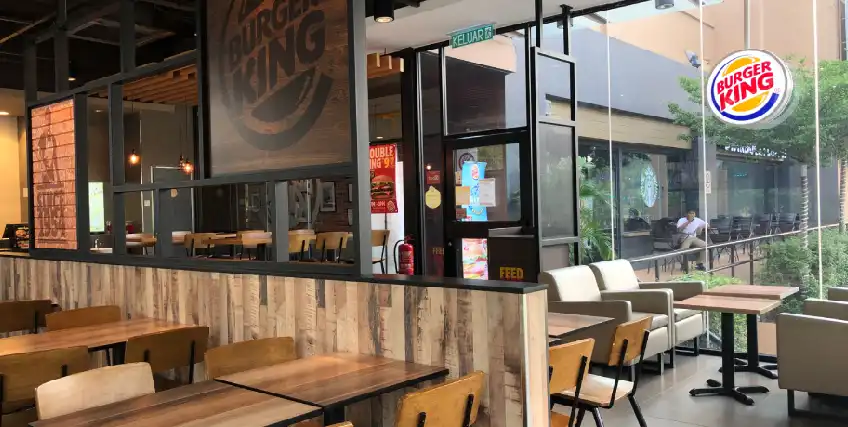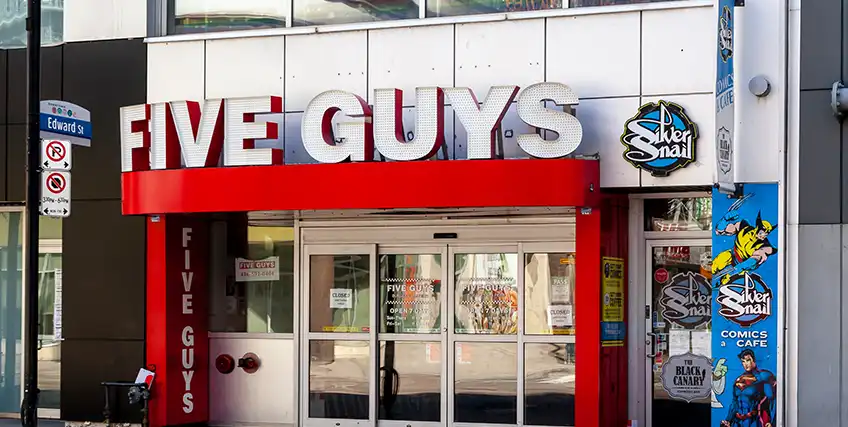Common Franchise Complaints Vs Franchise Benefits: What Every Business Owner Needs to Know
March 12, 2025 | Last Updated on: March 12, 2025

Many aspiring entrepreneurs consider franchising as a steppingstone to enter business ownership. While the right franchise can be a great investment, prospective franchisees need to do due diligence to avoid scams and ensure that they enter any franchising agreement with their eyes wide open. Franchise complaints often arise when owners finally realize the challenges of franchising, but at the same time, there are significant franchise benefits that make this model appealing.
Owning a small business always comes with complications, and there are some frequently heard franchise complaints that new franchise owners need to be aware of before finalizing any agreement. Thankfully, most issues are prevalent enough that you can avoid them or learn how to solve them before you encounter them. In this article, we’ll look at common franchise complaints and talk about the many franchise benefits that make this business model a proven success.
Let’s get started!
Common Franchise Complaints
High Upfront Costs
High franchise fees are one of the most common franchise complaints that owners experience. As a new or potential owner, you have to be prepared to invest quite a bit upfront. For popular brands, this can be anywhere from $45000 to a few million dollars, depending on the franchise. Some franchises also require that you have a couple hundred thousand dollars of cash on hand, which can add to your initial investment.
So, how do you tackle this issue?
If you’re planning to open a small franchise business, there’s no way around the upfront costs, operational fees, and franchise dues. You can bring your costs down by getting the work done locally, such as hiring local building contractors who won’t charge as much as their competitors. If you’re considering using a bit of financing to get established with the franchise, using a Small Business Administration (SBA) loan can help you reduce rates, even for real estate loans. Some franchisors also offer in-house financing, making it easier to buy a franchise business without excessive out-of-pocket expenses.
Don’t let the high costs of franchising demotivate you. One of the major franchise benefits is that you’re investing in a proven business model, reducing risks associated with starting a brand-new business from scratch. The costs you would normally invest in creating a business plan, finding customer segments, and building your own business from the ground up are already included and you’ll likely start bringing in revenue on day one. The other thing to consider about buying a franchise business is that it’s not just restaurants and hotels that are up for purchase. Franchise opportunities are available at almost every price point.
Less Brand Control
Another frequent franchise complaint with franchise ownership is that there’s less brand control. This means that if one portion of the franchise has a problem, it tends to trickle down to all locations. For instance, in 2015, Chipotle faced the issue of more than 40 people falling ill from E. coli after eating at one of their restaurants. While this was an isolated incident, the negative media coverage affected every Chipotle. Stocks plummeted. The bad press damaged the brand. And even though Chipotle is mostly company-owned, franchise owners were affected as well.
Chipotle isn’t alone in this. Negative press issues have affected many different franchises around the world. But if you have no control over what the corporate brand or other locations in the franchise system are doing, how can you prevent your business from being affected by the negative press?
The best way to mitigate bad PR is to hold yourself and your employees to the highest level of quality across all business practices. Get to know your patrons and work diligently to create a loyal customer base. That way, if another location has an issue, your customers will know that your quality is higher than what the news is reporting about the other site(s). If your location is forced to close due to a franchise-wide issue, make sure you keep in communication with your customers, so they know what to expect. You might even consider publishing your local phone number and contact information somewhere so you can answer consumer questions.
Less Decision-Making Power
While many business owners have total control over pricing, branding, and marketing, franchisees don’t have the same luxury. This can be both good and bad. While it takes some stress off of you as the owner, it also doesn’t allow you the freedom to make or prevent changes. The lack of decision-making power could be considered a pain when you’re trying to grow your business but don’t feel that you have any wiggle room for trying new things.
This particular franchise complaint doesn’t have a clear solution. While you may feel frustrated about your lack of ability to make decisions about your franchise, remember that the franchisor also wants to make money. And they don’t make money if you don’t make money. The chances are good that a lot of time, money, and research has been put into any decisions the franchise makes on your behalf. If you feel that you have a money-making idea that hasn’t been implemented yet reach out to your franchisor and place the idea in their hands. If they research the big picture and find that it has a good chance of increasing profits, they may apply the decision to all franchise locations.
Time Commitment
Because a franchise is practically a premade business in a box, some potential franchisees assume that once they start a franchise, it will run itself. That is just not the case. Running a franchise is a full-time (and often overtime) job.
The easiest solution to this franchise complaint is to be prepared. If you know in advance that running a franchise will be time-consuming and a huge commitment, then you will know what to expect as you dive further into your journey of becoming a franchise owner.
High Employee Turnover
If your franchise interest is a restaurant, you’re going to have to consider that the restaurant industry has a high employee turnover rate (especially during the pandemic). It can be as high as 75%. The fast-food industry doubles that with a 150% employee turnover. High turnover rates stem from the increased demand on employees and the hiring of younger and less specialized workers who tend not to stick around because of low pay, high stress, and alternate opportunities that present themselves.
While many franchise complaints highlight this issue, there are a couple of things that you can do to lower your turnover rate, including improving your hiring practices and creating retention programs. If your staff feels adequately trained, prepared for various scenarios and workloads, and valued for their contribution, they won’t be as frustrated when faced with higher demands.
Franchises tend to attract a lot more applicants than mom and pops because of brand recognition. This typically gives you a large applicant pool to choose from, but many of those applicants will be inexperienced and may not be able to keep up with the job. Be sure to put the time and effort into hiring quality employees. My rule of thumb? Look for people who are humble, hungry, and smart.
Brand Dilution
This particular complaint isn’t something that you will have much control over. By owning a franchise, you’re taking on the name of a well-known brand. But if you own a well-known brand, you likely won’t be the only location in the area. Brand dilution means that it will be harder to create a loyal customer base. If you own a franchise with multiple locations nearby, your profit may be less than if you owned one that had fewer locations. For example, Chick-fil-A has fewer locations nationwide than McDonald’s, or Subway, but their locations tend to bring in more profit than these other fast-food places—despite being closed on Sundays!
Before buying a franchise business, assess market saturation. How close is the nearest existing location to where you want to build? Will brand recognition be enough to create a significant profit when dealing with a highly saturated market?
Some franchises require that you maintain a certain distance from other locations, so do a feasibility study to see where you could build based on existing franchises in your area.
Common Franchise Benefits
Despite some franchise complaints, the franchise benefits far outweigh the drawbacks. Besides being your own boss, here are some reasons why entrepreneurs continue to franchise your business and invest in franchising:
Franchisor Network
One of the biggest benefits of owning a franchise is the fact that you don’t have to start from scratch: you can lean on the experience of your peers. This isn’t a situation where you’re going blindly into a new business. You will have the training and tools available to guide you in the right direction for making your franchise location a success.
Innovation Not Required
When buying a franchise business, the first thing you have to be good at is following instructions. Unlike a startup, where you’re creating a new value proposition and have to educate customers, in the franchise industry, those tasks have already been accomplished. Marketing, pricing, vendor contracts, and branding have all been taken care of by your franchisor. This allows you to focus on other aspects of the business, such as hiring, employee retention, customer satisfaction, and inventory control.
Fewer Decisions
Earlier, we discussed how less decision-making power might be considered a negative, and sometimes it can be. But having fewer decisions to make as a business owner also frees up your time to focus on other things. For franchise owners too, this can be one of the hidden franchise benefits that might prove fruitful for them in the future. When you don’t have control over branding, marketing, pricing, products/services, etc., you can focus on just making your particular location a success. This will allow you to work on customer relations and hire high-quality workers.
Conclusion
Owning a franchise is different than starting a new business and growing it. And you’re not just purchasing someone else’s business. You’re buying a name, a brand, and a proven business model. This can make your path to success much simpler and more straightforward.
And it is true that there are plenty of franchise complaints but let’s not forget about franchise benefits that are in great numbers too. Even though franchise complaints are easy to find if you do a little internet sleuthing, don’t let them deter you if franchise brands intrigue you. For every franchise complaint you find, there are countless satisfied franchise owners who have never taken the time to write up their experience for you or share any franchise benefits they might have enjoyed. Do your research about the franchise industry, learn what you can from the mistakes of others, read franchise disclosure documents carefully before signing them (hire a lawyer to explain anything you don’t understand). The bottom line here is that with hard work and a little luck, you’ll be on your way to owning a successful small franchise business!
Frequently Asked Questions on Franchise Complaints and Franchise Benefits
What are the biggest franchise benefits compared to starting a business from scratch?
One of the biggest franchise benefits is the ability to operate under an established brand with a proven business model. Unlike starting from scratch, buying a franchise business provides access to marketing support, training, and operational systems, reducing risks and increasing the chances of success. For entrepreneurs looking to start a franchise, the ability to leverage an existing customer base is a major advantage over independent businesses.
What are the most common franchise complaints, and how can they be avoided?
Some frequent franchise complaints include high franchise fees, limited control over operations, and ongoing royalty payments. Franchisees must follow corporate guidelines, which can sometimes feel restrictive. Before you buy a franchise business, it's essential to review the Franchise Disclosure Document (FDD) and speak with existing franchisees to understand potential challenges. Proper research can help avoid costly surprises and ensure you're making the most of the benefits of owning a franchise.
How much does it cost to start a franchise, and what factors influence the investment?
The opening cost of a small franchise business varies widely based on the industry, brand, and location. The cost to start a franchise can range anywhere from $50,000 for low-cost service franchises to several million dollars for major brands. Initial fees include franchise fees, royalty fees, equipment, real estate, and working capital. While the upfront cost is significant, many entrepreneurs franchise their business to expand operations and benefit from an established market presence.
Is owning a franchise more profitable than an independent business?
The benefits of owning a franchise include access to a trusted brand, established operational procedures, and a loyal customer base, which can lead to faster profitability. However, franchisees must pay royalties and follow corporate guidelines, which may limit profit margins. Entrepreneurs who want to start a franchise should weigh these factors against the risks of an independent business, where they have more control but face greater uncertainty.
What factors should I consider before buying a franchise business?
Before buying a franchise business, consider factors such as total investment cost, brand reputation, franchisor support, and market demand. One of the biggest franchise complaints is the lack of control over business decisions, so it's important to choose a brand that aligns with your goals. If you're looking for franchise benefits, research brands that offer strong training programs, marketing support, and reasonable fees to maximize success.




